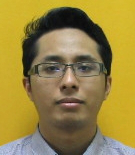About this Module
What you will learn
This module will focus on the types of alternative water resources that are available on earth for example rainwater harvesting, groundwater, stormwater harvesting, reclaimed wastewater, graywater, and desalination. It also covers the sources of pollution and challenges in the implementation of alternative water resources. Participants are also provided with interesting animation videos for additional material to enhance their knowledge of this module. This module is implemented in the theoretical method. At the end of the module, participants are exposed to interactive activities and formative as well as summative assessments. The objectives of this module are 1. To provide an online course aimed at unlimited participation and open access via the Ufuture platform. 2. To promote an active self-direct learning process on fundamental knowledge of various types of alternative water resources. 3. To support active involvement and interactions among students, lecturers, and course instructors.
What skills you will gain
Quizzes, Gamification
Total contents and assessments
6 teaching videos, 12 lecture notes, 6 animation videos, 6 interactive activities, and 2 assessments.
Module Details
CLUSTER : Science & Technology ( ST ) MODE/DURATION : Flexible LENGTH : 10 days EFFORT : 4 LEVEL : Beginner LANGUAGE : English CERTIFICATE : Yes CPD POINT : 0 PRICE : Free Associated Course (s) : No Course








